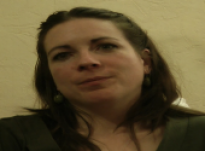Jo

More about me...
Looking back, Jo said that she never really felt that well during her pregnancy. She went on to have an emergency caesarean after suffering a placental abruption, caused by the onset of pre-eclampsia.
Looking back, Jo said that she never really felt that well during her pregnancy. She went on to have an emergency caesarean after suffering a placental abruption, caused by the onset of pre-eclampsia.
Jo started bleeding at home, an early sign that her placenta was breaking away from her womb. The crash team were waiting for her at the hospital. Her immediate thought was 'who's dying'?
Jo started bleeding at home, an early sign that her placenta was breaking away from her womb. The crash team were waiting for her at the hospital. Her immediate thought was 'who's dying'?
So I went and I said to [husband]… you know, “I’m bleeding.” And he said, “Oh shall I ring the labour ward then?” So he rang the labour ward, and the midwife said, “Oh well, just make your way in, but if it gets worse phone an ambulance.” And by this stage I’d never heard of placental abruption. I didn’t even know what a heavy blood loss in late pregnancy would be an indication of. I had no idea.
Jo's first baby was born by emergency caesarean after she had a placental abruption (the placenta separates from the lining of the womb). She felt the care she received after the emergency was over made no allowance for what she had been through.
Jo's first baby was born by emergency caesarean after she had a placental abruption (the placenta separates from the lining of the womb). She felt the care she received after the emergency was over made no allowance for what she had been through.
Jo still feels she is slightly detached from her son, because of his birth was so sudden and quick.
Jo still feels she is slightly detached from her son, because of his birth was so sudden and quick.
I think I felt, and I still do to a degree actually if I’m really honest, feel slightly detached. I mean I love him dearly, but I think it was because I had, you know, this, it was so sudden. It was so quick, his birth, that I actually think, well how do I actually know he was mine. I wasn’t there. [Husband] wasn’t there. He doesn’t look like me, you know, there’s all these funny things go through your head and when you sort of… and I just think, oh how do I know? I just have to trust them, that they gave me the right child. And it’s really, really hard and especially where my daughter was born, because I was conscious and I was, you know, I saw her come straight out. And I felt awful. I thought well I didn’t have that with him. And it, you know, it really has. I mean I know in future I’m going to have to work a lot harder at my relationship with him because of it. So yes, its, I think what happened is, its, so there I’m finding it much, much easier to talk about now. I think it still will be there for different, it’ll come up at different stages of my life I think. I think it’s a bit simplistic to say, oh you know, I’m over it now, because I’m not, I am over it to a degree but I don’t think I’m going to forget, you know, that day or the implications of that day, ever, I don’t think.


